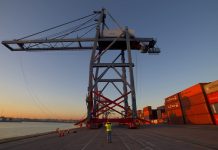
Indian hinterland exporters and importers, now considerably relieved of the pressure of soaring carrier rate hikes, have a new inland cost burden approaching.
Indian Railways has announced the reintroduction of a 15% peak season surcharge it typically applies from October through June to take advantage of seasonal volume surges. The public transporter suspended this levy in 2019 in order to lift sagging loads in the wake of an economic downturn, which later saw unexpected shocks from the Covid pandemic.
Indian freight volumes have bounced back strongly from the past economic setbacks and widespread disruptions caused by Covid lockdowns during 2020-21, allowing the railway authority to adjust pricing dynamically.
“The matter has been reviewed and the competent authority has decided that from 1 October 2022, the busy season charge shall be leviable as it was in force prior to 1 October 2019,” a public notice said.
Indian Railways, a statutory body under the ownership of the Government of India that operates the country’s national railway system, expects to mop up additional revenue of approximately US$430 million from this levy, according to industry sources.
According to available data, Indian Railways saw freight loads rise 15% year-over-year in the fiscal year 2021-22 which ended in March. And this upswing has continued into the current year, with August volumes reaching a new monthly high of 120 million tons.
Buoyed by positive demand signs, the government body recently cut back on the haulage incentives it had earlier implemented for the movement of laden and empty containers in line with the government’s export growth approach.
The scale of tariff concessions for empties, which had been revised downwards from 25% to 15% in April this year, is now at 10% until the end of October. Haulage charges are the fees collected by Indian Railways from container rail companies for the use of its countrywide infrastructure network.
Train loads out of inland container depots (ICDs) in North India constitute a major portion of container volumes moving via the ports of Nhava Sheva (JNPT) and Mundra, especially at the latter gateway because of its closer proximity to the northern interior.
Container lines serving Indian trades have been vocal about their proactive efforts towards empty equipment repositioning to meet high export demand. According to the Container Shipping Lines’ Association (CSLA), around 1.85 million TEU of empty boxes were repositioned into the market in 2021.
“Indian exports grew over the last two years due to the repositioning of empty containers into the country and the introduction of additional capacities by the shipping lines,” CSLA executive director, Sunil Vaswani said.
Jenny Daniel
Global Correspondent
Contact email: j.daniel@container-news.com





